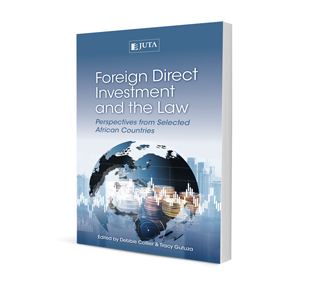Bilateral investment treaties: Has South Africa chartered a new course?

Bilateral investment treaties: Has South Africa chartered a new course?
Authors D Davis
ISSN: 1996-2088
Affiliations: Judge President of the Competition Appeal Court
Source: Acta Juridica, 2018, p. 1 – 16
Abstract
This essay explores the history of the South African government’s conclusion of a series of bilateral investment treaties (BITS) after 1994. It then examines the reasons why South Africa decided that BITS subverted a number of critical developmental goals, many of which were enshrined the Constitution. The legislation that followed revealed that the government was prepared to eschew certain forms of foreign investment pressure and to carve out an independent set of investment policies. This in turn raises the question explored in this paper about the scope of national sovereignty to trump global demands for a specified investment framework.